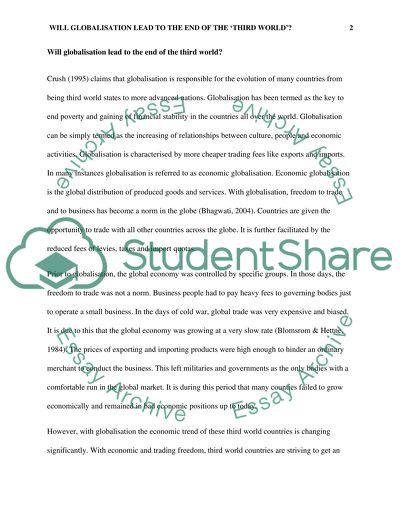Cite this document
(“Will Globalisation Lead to the End of the 'Third World' Essay”, n.d.)
Retrieved from https://studentshare.org/history/1451500-will-globalisation-lead-to-the-end-of-the-ychthird
Retrieved from https://studentshare.org/history/1451500-will-globalisation-lead-to-the-end-of-the-ychthird
(Will Globalisation Lead to the End of the 'Third World' Essay)
https://studentshare.org/history/1451500-will-globalisation-lead-to-the-end-of-the-ychthird.
https://studentshare.org/history/1451500-will-globalisation-lead-to-the-end-of-the-ychthird.
“Will Globalisation Lead to the End of the 'Third World' Essay”, n.d. https://studentshare.org/history/1451500-will-globalisation-lead-to-the-end-of-the-ychthird.


